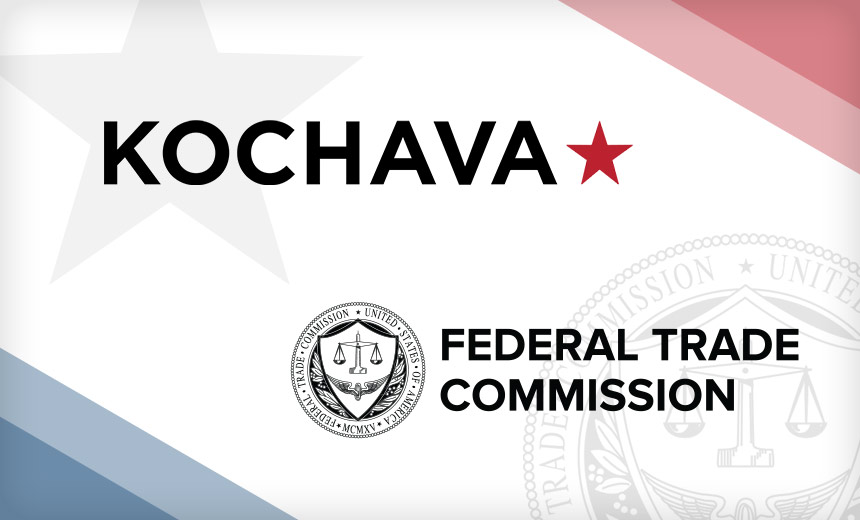Governance & Risk Management
,
Legislation & Litigation
,
Privacy
Agency Asks for Revised Complaint to Be Sealed Until Review for ‘Trade Secrets’

The Federal Trade Commission renewed its bid to sue location data broker Kochava for invasion of privacy after a judge said a previous attempt failed to allege consumers are at significant risk.
See Also: Live Webinar | Breaking Down Security Challenges so Your Day Doesn’t Start at 3pm
The agency filed in federal court an amended complaint Monday against the Idaho company, promising “additional factual allegations” against Kochava that “are based, in part, on materials produced by Kochava,” federal attorneys told the court.
The agency filed the amended complaint under seal, citing possible objections by Kochava to a public airing of material the company asserted is proprietary.
“The FTC does not believe that the information contained in the Amended Complaint reveals trade secrets or is otherwise entitled to confidential treatment,” attorneys for the FTC wrote, asking the judge for a later ruling that would overrule Kochava’s assertions.
The agency initiated litigation last August against Kochava, alleging the company invades consumers’ privacy by selling geolocation data from mobile phones tied to a unique ID (see: FTC Sues Firm That Collects, Sells Sensitive Location Data).
That information could be used to identify individuals who have visited abortion clinics, mental health providers and other sensitive locations, the agency said in the first complaint.
Judge B. Lynn Winmill of the U.S. District Court for the District of Idaho dismissed on May 4 the agency’s first complaint, writing that the FTC had relied too much on an inference that consumers are injured by the data broker’s business model. He said the agency could try again within 30 days, writing that “the privacy concerns raised by the FTC are certainly legitimate” (see: Court Dismisses FTC Complaint Against Data Broker Kochava).
An FTC spokesperson told Information Security Media Group the agency is “confident the amended complaint addresses the concerns raised by the court and that this case will move forward.”
“This is an important case for the agency and I was not surprised to see the FTC amend its complaint,” said Daniel Kaufman, former acting director of the FTC’s Consumer Protection Bureau, currently a regulatory attorney at law firm BakerHostetler, who is not involved in the case.
“The judge in this case accepted the important principle that privacy intrusions can constitute substantial injury under the FTC’s unfairness authority. That is a significant holding by the court and I am sure the FTC wants to further develop this important legal concept for this and future privacy cases,” he said.
Kochava last August filed its own lawsuit in the same Boise federal court weeks before the FTC’s legal action, as a bid to preemptively counter the federal agency (see: Lawsuit Against FTC Intensifies Location Data Privacy Battle).
The company also filed a motion last October to dismiss the FTC’s lawsuit.
Kaufman said the FTC’s motion to seal the amended complaint is not a strategic issue and is instead mandated by some of the FTC’s internal rules.
“The amended complaint is likely relying upon documents that had been designated as confidential by Kochava when the FTC investigated the company. Accordingly, there are now some procedural steps the agency needs to take in order to use or disclose those documents,” he said.
Kochava did not immediately respond to ISMG’s request for comment.
